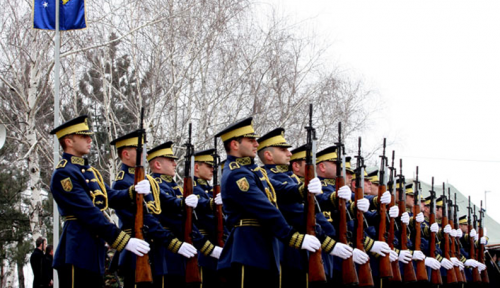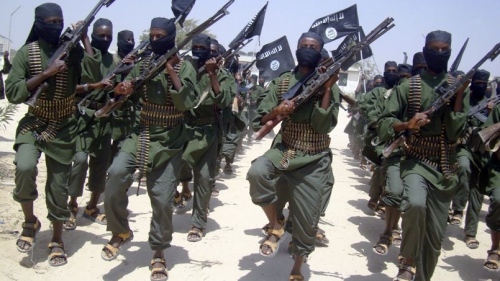
America’s Jihad
by Dr. K R Bolton
Ex: http://www.foreignpolicyjournal.com
Download this article (PDF)
The Islamic State organization seems to have arisen overnight, well-armed, and swiftly moving through Iraq and Syria, seemingly unstoppable. One might wonder as to how plausible it is to believe the CIA, U.S. National Security Council, and Mossad supposedly hitherto knew little or nothing of the Islamic State jihadists. We are apparently expected to believe that they appeared from nowhere as if by magic.
It is apt to recall the present Jihad bogeyman arose from the Mujahideen, which was formed by the CIA as a guerrilla force against the Russians in Afghanistan. The “clash of civilizations,” as neocon historians refer to the “war on terrorism,” was a contrivance; not the result of an inexorable historical law. By the end of the First World War much goodwill existed between the Entente and the Arabs who had fought together against the Ottoman Empire, with the expectation that the Arab states would achieve independence, thanks to the heroic efforts of T. E. Lawrence and the Arabic fighters. Their guerrilla war against the Turks had been crucial to the war effort, although subsequently besmirched by Zionist propagandists.[1] Thanks to Zionist machinations, the Entente had spoken with a forked tongue to the Arabs while making a contrary promise to the Zionists to back a Jewish state in Palestine in return for Jewish influence supporting the Entente cause, by then in a predicament, in the USA. The result was the Balfour Declaration and the needless prolongation of the war[2] so that the Zionists and the messianists could get their nose poked into Palestine until such time as being able to dump themselves en masse after the Second World War.
It is also opportune at this point to recall those who introduced terrorism into Palestine. The Irgun, Stern and Palmach underground regarded the British as the “new Nazis,” and for that matter anyone who stood in the way of their messianic dreams. Hence, United Nations envoy Count Folke Bernadotte, who had negotiated for thousands of Jews to leave German occupied territory, was gunned down by the Sternists because his suggestions for the boundaries of Israel were regarded as an affront to Jewry.[3] Ultimately, the Zionist dream for Israel extends the boundaries from the rivers Nile to Euphrates (Genesis 15: 18) and any compromise of captured territory would mean the surrendering of the deeds of promise from God Himself,[4] unless there is a longer-term motive involved. There cannot be peace in the Middle East until that dream is forgotten, which is not going to happen, any more than the aim of rebuilding the Temple of Solomon upon the ruins of the Al Aqsa Mosque as the prerequisite for the coming of the Jewish Messiah;[5] the declaration of Jerusalem as the capitol of the world, and the elimination of “idolatrous” religions, to be replaced by the Seven Noahide Laws, already promulgated by U.S. Congress.[6] As the Israeli scholar Dr. Israel Shahak documented, such notions are alive and kicking in Israel.[7] Yet we are constantly told of “Muslim fanaticism.” We are also told of the hatred Islam possesses for Christianity, despite the recognition of Jesus as a great prophet, and his mother. Meanwhile, Talmudic Judaism teaches that Jesus was the son of a whore and a Roman soldier, Pandira, and is in hell boiling in semen. The hatred of Talmudic Jews for Christianity is frequently manifested by the Orthodox custom of spitting on monks and priests, and in many other ways, again documented by Shahak.[8]
In short, the origins of the present Middle East terrorism stem from Franco-British duplicity and Zionist machinations during the First World War, and rampant religious lunacy from Judaism rather than Islam. As the political and judicial theorist Dr. Carl Schmitt pointed out, an outer enemy is often the prerequisite for the formation or maintenance of unity among disparate elements. Hence, Zionism requires “anti-Semitism” to exist. Israel requires the myth of belligerent Arab neighbors ever ready to run them into the Dead Sea. The USA requires a new global bogeyman after the demise of the USSR, to maintain its role as the world’s “big brother,” albeit one of a particularly vulgar and bullying type. While Putin’s Russia has somewhat served the role once occupied by the USSR, it is difficult to imbed the notion into the world’s consciousness that Putinism, like Sovietism, supposedly aims at world conquest, and only the USA can stop this. An added factor is required. Jihadism serves these purposes for both the USA and Israel. Where would the USA have been since the implosion of the Soviet bloc, had it not been for Jihadism? Largely obliged to mind its own business for the first time since before Woodrow Wilson.
Mujahideen a U.S. Creation
The ground for Jihadism was sown by the U.S. arming of the Mujahideen against the USSR in Afghanistan. The CIA describes its role in founding Jihadism:
After the Soviet Union invaded Afghanistan in December 1979, President Carter directed CIA to assist the Afghan mujahidin. CIA came to see that the indigenous Afghan opposition to the Soviets was less an organized movement than widespread opposition by villages and tribes. Through Pakistan, CIA provided the mujahidin with money, weapons, medical supplies, and communications equipment. Initially the goal was to drain Soviet resources by keeping their forces bogged down. In 1985, CIA shifted from a plan of attrition to one that would help the rebels win. One of the pivotal moments came in September 1986, when the mujahidin used CIA-provided Stinger missiles to shoot down three Soviet Mi-24D helicopter gunships. As part of this escalation of financial and materiel support, President Reagan issued new guidance that put CIA into more direct contact with rebel commanders, beginning an era of CIA interaction with tribal and local leaders that continues through the post-9/11 era. [9]
The CIA then supported the Northern Alliance against the Taliban government. The CIA also claims that it supported the Northern Alliance against Al Qaeda and bin Laden when they moved into Afghanistan from the Sudan. However, an NBC report states of CIA support for bin Laden:
As his unclassified CIA biography states, bin Laden left Saudi Arabia to fight the Soviet army in Afghanistan after Moscow’s invasion in 1979. By 1984, he was running a front organization known as Maktab al-Khidamar – the MAK – which funneled money, arms and fighters from the outside world into the Afghan war.
What the CIA bio conveniently fails to specify (in its unclassified form, at least) is that the MAK was nurtured by Pakistan’s state security services, the Inter-Services Intelligence agency, or ISI, the CIA’s primary conduit for conducting the covert war against Moscow’s occupation.
The CIA, concerned about the factionalism of Afghanistan … found that Arab zealots who flocked to aid the Afghans were easier to “read” than the rivalry-ridden natives. While the Arab volunteers might well prove troublesome later, the agency reasoned, they at least were one-dimensionally anti-Soviet for now. So bin Laden, along with a small group of Islamic militants from Egypt, Pakistan, Lebanon, Syria and Palestinian refugee camps all over the Middle East, became the “reliable” partners of the CIA in its war against Moscow.[10]
These Afghan veterans became the nucleus for Jihadists further afield.[11]
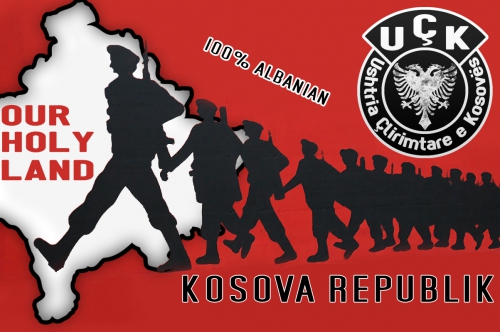
Serbia Targeted
When the U.S. globalists wanted to dismember Yugoslavia and globalize the wealth of Kosovo, again we find the Mujahideen. The USA claims to be fighting Islamic terrorism worldwide. Milosevic’s Serbia was on the frontline fighting Islamist terrorism. Rather than U.S. support for the Serbs, the support went to Islamist terrorists and gangsters. Serbs had been the target of Islamists for decades. They aimed to carve out a Greater Albania by annexing Kosovo. The U.S./NATO interest was that of privatizing the globalizing the vast mineral wealth and other resources of the region run by the State.
In 1998 the Kosovo Liberation Army was described by U.S. special envoy to Bosnia, Robert Gelbard, as “terrorists.” The U.S. State Department had previously prepared a report detailing the methods of the KLA to intimidate Kosovan-Albanian ethnics into supporting them. Prior to Milosevic’s intervention to restore order, U.S. official sources were reporting that Albanian ethnics were fleeing their villages in their entirety to escape the KLA. Also well-known by American and European police agencies were the drug-trafficking connections the KLA had with organized crime in Europe and Turkey.[12]
The KLA aim was for a Greater Albania including parts of Serbia, Greece, Macedonia, and Montenegro. Chris Hedges, when New York Times Balkans Bureau Chief (1995-1998), wrote in Foreign Affairs of a map of the Greater Albania found at a KLA compound. Hedges reported: “Between 1966 and 1989 an estimated 130,000 Serbs left the province because of frequent harassment and discrimination by the Kosovar Albanian majority.” Hedges mentioned the funding that the KLA was receiving from Islamic states and the presence of Mujahideen in the KLA staging area in northern Albania. In 1981, the Associated Press reported that 4000 Serbs fled Kosovo due to anti-Serb riots, and the desecration of Orthodox churches and graves. [13]
When Serb forces attacked Srebrenica, it was to end the armed attacks mounted from the Islamist base on nearby villages. A news report of the time cites “intelligence sources” as stating that it was “harassment which precipitated the Serb attack on the 1,500 Muslim defenders inside the enclave.”[14] General Philippe Morillon, commander of the U.N. troops in Bosnia (1992-1993), testified before the International Criminal Tribunal for the Former Yugoslavia that Muslim forces based in Srebrenica had “engaged in attacks during Orthodox holidays and destroyed villages, massacring all the inhabitants. This created a degree of hatred that was quite extraordinary in the region.” Between May and December 1992, Muslim forces repeatedly attacked Serb villages around Srebrenica, killing and torturing civilians; some were mutilated and burned alive. Muslim forces in Srebrenica murdered over 1,300 Serbs and had “ethnically cleansed” a vast area.[15]
The London Spectator reported that during 1992-1995 the Pentagon helped Islamists from Central Asia to reach Bosnia and join the Bosnian Muslims, stating:
As part of the Dutch government’s inquiry into the Srebrenica massacre of July 1995, Professor Cees Wiebes of Amsterdam University compiled a report entitled “Intelligence and the War in Bosnia”, published in April 2002. In it he details the secret alliance between the Pentagon and radical Islamic groups from the Middle East, and their efforts to assist Bosnia’s Muslims. By 1993, there was a vast amount of weapons-smuggling through Croatia to the Muslims, organised by ‘clandestine agencies’ of the USA, Turkey and Iran, in association with a range of Islamic groups that included Afghan Mujahideen and the pro-Iranian Hezbollah. Arms bought by Iran and Turkey with the financial backing of Saudi Arabia were airlifted from the Middle East to Bosnia – airlifts with which, Wiebes points out, the USA was “very closely involved.”[16]
One of the stated war aims of NATO was that the Yugoslav Federation would become a “free market” economy. The fight for a “free market” economy was not an aim that seems to have been widely publicized by the spokesmen for the U.S. State Department and British Foreign Office at the time. The prize was the Trepca mining complex, which had operated 24 hours a day, having the richest lead, lignite and zinc deposits in Europe, and one of the richest world-wide. Once the moral pontifications of the Rambouillet diktat were dispensed with, chapter four makes the aim clear enough: Article I (1): “The economy of Kosovo shall function in accordance with free market principles.”[17] A Privatization agency of Kosovo was established, but the economy, including Trepca, remains in a shambles.
Russia, Libya, Syria…
Islamists have likewise proven useful within the Russian Federation. The primary pro-Chechnya lobby in the USA was the Freedom House-founded American Committee for Peace in Chechnya. This included some of the most notable neocons and Zionists: Richard Perle; Elliott Abrams; former U.S. Ambassador to the U.N., Kenneth Adelman; Midge Decter of the Heritage Foundation; Frank Gaffney of the Center for Security Policy; Bruce Jackson of the U.S. Committee on NATO; Michael Ledeen of the American Enterprise Institute, and former CIA director R. James Woolsey.[18] It is strange that of these enthusiasts for the rights of Muslims in Russia, all but Abrams and Ledeen were members of the arch-Zionist Project for a New American Century, founded in 1997. A sub-branch was the Study Group on a New Israeli Strategy Toward 2000 headed by Perle, which prepared a blueprint for the reorganization of the Middle East, that calls in particular for “regime change” in Syria and Iran, This seems to be the plan that is be is being followed.[19]
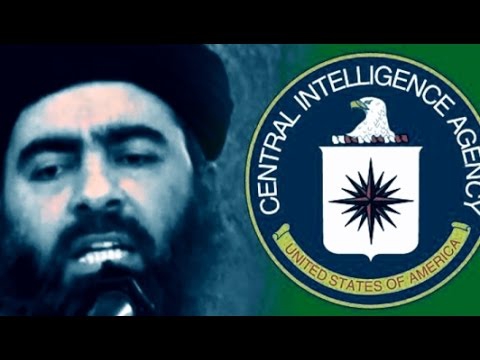
While the ACPC changed its name to American Committee for Peace in the Caucasus, it seems to have become largely defunct since 2013. That is the year of the Chechan bombing in Boston. Wayne Madsen, writing for the Strategic Culture Foundation, commented:
After revelations that an entity called the Caucasus Fund was used by the CIA-linked Jamestown Foundation of Washington, DC to sponsor seminars on the North Caucasus in Tbilisi from January to July 2012, Georgian authorities moved to shut down the fund. The reason given by Georgia was that the organization had “fulfilled its stated mission”. Caucasus Fund and Jamestown Foundation events were attended by accused Boston Marathon bomber Tamerlan Tsarnaev, a citizen of Kyrgyzstan born to parents from Dagestan. Jamestown had previously held a seminar in Tbilisi on “Hidden Nations” in the Caucasus, which, among other issues, promoted a “Greater Circassia” in the Caucasus. [20]
Madsen remarks of the general strategy:
U.S. “humanitarian” and “civil society” assistance to radical Islamist groups has, for the past three decades, filtered into the coffers of terrorist groups celebrated as “freedom fighters” in Washington. This was the case with U.S. support for the Afghan Mujaheddin through such groups as the Committee for a Free Afghanistan during the Islamist insurgency against the People’s Democratic Republic of Afghanistan in the 1980s and the Bosnia Defense Fund in the 1990s. In the case of Afghanistan, U.S. and Saudi money ended up in the hands of insurgents who would later form “Al Qaeda” and in Bosnia U.S. funds were used by Al Qaeda elements fighting against Yugoslavia and the Bosnian Serb Republic and, later, Al Qaeda elements supporting the Kosovo Liberation Army (KLA) in its war against Serbia.[21]
Terrorists supported by the USA to oust Qaddafi were then sent to Syria to continue the American Jihad against stable states. The CIA had been funding a Libyan rebel army since 1988, Khalifa Haftar’s Libyan National Army. Haftar had been living for twenty years in Virginia, prior to returning to Libya with CIA and Saudi backing. Patrick Cockburn commented in The Independent:
Even shadier is the background of Abdul Hakeen al-Hassadi, a Libyan who fought against the US in Afghanistan, was arrested in Pakistan, imprisoned probably at Bagram, Afghanistan, and then mysteriously released. The US Deputy Secretary of State, James Steinberg, told Congressmen he would speak of Mr Hassadi’s career only in a closed session.[22]
Mossad Destablization
Israel has sought to keep the entire region in a state of destabilization. This serves several factors. A constant state of conflict portrays Israel as the only stable entity in a volatile region. Destabilization ensures that there can be no united front against Israeli’s aspirations, which are never-ending. The notion of Jews being surrounded by mad Arabs keeps the Israelis in a state of preparedness and unity. Israel went to the extent of backing the Red Brigades in Italy during the 1970s as part of a destabilization strategy, indicating the extent of the strategy. According to Magistrate Ferdinando Imposimato, who led the investigations into the 1978 kidnapping and murder of former Prime Minister Aldo Moro, “‘at least until 1978 Israeli secret services had infiltrated Italian subversive groups. He said that based on confessions of jailed guerrillas who turned police informers there had been an Israeli plan to destabilize Italy. The plan aimed at reducing Italy to a country convulsed by civil war so that the United States would be forced to count more on Israeli for the security of the Mediterranean,’ the judge said.” [23]
The extent of this destabilization strategy has included Mossad backing of Islamists at an early stage. According to a UPI news report on a 2002 Hamas bombing of a Jersualem city bus,
Israeli Prime Minister Ariel Sharon immediately vowed to fight “Palestinian terror” and summoned his cabinet to decide on a military response to the organization that Sharon had once described as “the deadliest terrorist group that we have ever had to face.” Active in Gaza and the West Bank, Hamas wants to liberate all of Palestine and establish a radical Islamic state in place of Israel. It has gained notoriety with its assassinations, car bombs and other acts of terrorism. But Sharon left something out.
Israel and Hamas may currently be locked in deadly combat, but, according to several current and former U.S. intelligence officials, beginning in the late 1970s, Tel Aviv gave direct and indirect financial aid to Hamas over a period of years. Israel “aided Hamas directly – the Israelis wanted to use it as a counterbalance to the PLO (Palestinian Liberation Organization),” said Tony Cordesman, Middle East analyst for the Center for Strategic [and International] Studies [CSIS]. Israel’s support for Hamas “was a direct attempt to divide and dilute support for a strong, secular PLO by using a competing religious alternative,” said a former senior CIA official. … According to U.S. administration officials, funds for the movement came from the oil-producing states and directly and indirectly from Israel. The PLO was secular and leftist and promoted Palestinian nationalism. Hamas wanted to set up a transnational state under the rule of Islam, much like Khomeini’s Iran.[24]
Even when the support for Hamas seemed to be backfiring there were those who continued to see a dialectical advantage:
But even then, some in Israel saw some benefits to be had in trying to continue to give Hamas support: “The thinking on the part of some of the right-wing Israeli establishment was that Hamas and the others, if they gained control, would refuse to have any part of the peace process and would torpedo any agreements put in place,” said a U.S. government official who asked not to be named. “Israel would still be the only democracy in the region for the United States to deal with,” he said. All of which disgusts some former U.S. intelligence officials.[25]
The strategy was confirmed by Mossad defector Victor Ostrovsky, who was told by a prominent Mossad officer that a decision was made to “destabilize Jordan to the point of civil anarchy.” The officer explained to Ostrovsky that this would be done by circulating counterfeit money and “arming religious fundamentalist elements, similar to Hamas and the Muslim Brotherhood,” assassinating leading figures who are symbols of stability, causing riots in the university to prompt government repression. The plan was also to destabilize Egypt in the same manner, with Mossad running guns to “Egyptian fundamentalists” through Afghanistan.[26]
Ostrovsky further relates that “Mossad had to come up with a new threat to the region, a threat of such magnitude that it would justify whatever action the Mossad might see fit to take.” The attitude of many in Mossad and elsewhere in Israeli ruling circles is that in order to maintain “fortress Israel” the “constant threat of war” needs to be maintained.[27]
Supporting the radical elements of Muslim fundamentalism sat well with the Mossad’s general plan for the region. An Arab world run by fundamentalists would not be a party to any negotiations in the West, thus leaving Israel once again as the only democratic, rational country in the region. And if the Mossad could arrange for the Hamas to take over the Palestinian streets from the PLO, then the picture would be complete.[28).
This destabilization dialectic is the same as that being enacted on a global scale by the USA to maintain its global ambitions. Since the Soviet bogeyman no longer exists as justification for U.S. global ambitions, the bogeyman of the “global war on Islamic terrorism” was quickly created as a substitute. While Putin has been demonized to at least keep the semblance of a Russian bogeyman intact, it cannot convincingly be said that Putin aims at “world conquest.” However, “Islamism” is a new threat to world peace, with a world Jihad and the aim of imposing Sharia law over the world. This new global threat must be met under U.S. leadership, which generally means U.S. domination, politically, economically and even morally and culturally, or what has been described as the “new world order.”
The Study Group for a New Israeli Strategy stated that Israel’s aims must be to
Work closely with Turkey and Jordan to contain, destabilize, and roll-back some of its most dangerous threats. This implies clean break from the slogan, “comprehensive peace” to a traditional concept of strategy based on balance of power. Change the nature of its relations with the Palestinians, including upholding the right of hot pursuit for self defense into all Palestinian areas and nurturing alternatives to Arafat’s exclusive grip on Palestinian society. [29]
Both aims have been fulfilled. As we have seen the backing of Jiahists involves the use of Jordan and Turkey, and the primary target is Syria, now that Saddam has been eliminated from Iraq. While the blueprint was addressed to Israel, one can see the role being played out by the USA in its fulfilment:
Israel can shape its strategic environment, in cooperation with Turkey and Jordan, by weakening, containing, and even rolling back Syria. This effort can focus on removing Saddam Hussein from power in Iraq — an important Israeli strategic objective in its own right — as a means of foiling Syria’s regional ambitions. [30]
Islamic State of Iraq and the Levant (a.k.a The Caliphate)
Suddenly ISIL (or ISIS, the Islamic State of Iraq and Syria) snaps onto the scene to pose the biggest threat to world peace, whose path of terror also happens to be a march through the states that have been marked for destruction by the Zio-neocons; Syria particularly. Like Hafta in Libya, and later Syria, the head of the Islamic State organization, Abu Bakr al-Baghdadi, has links with the USA. He was a “civilian internee” at an U.S. internment center in Umm Qasr, Iraq. He was “unconditionally released” in 2009.
What can be said is that Abu Bakr al-Baghdadi’s declaration of himself as Caliph of all Muslims world-wide has spread further factionalism among Muslims. Despite the universal repudiation among even radical Muslims, U.S. foreign policy strategists are building up ISIL as the most potent Islamic force. Assem Barqawi, the spokesperson for the al-Qaeda-affiliated al-Nusra Front – an erstwhile ally of ISIL in the Syrian war – spurned al-Baghdadi’s claim to a universal Caliphate, countering: “In short, al-Baghdadi and ISIL have no support whatsoever among Muslims. They are loathed even by their fellow ultra-Salafis, Wahhabis and Takfiris.” On the other hand terrorism expert William McCants of the Brookings Institution, said to the New York Times: “ISIS is now officially the biggest and baddest global jihadi group on the planet… Nothing says ‘hard-core’ like being cast out by Al Qaeda.” Dr. Kevin Barrett, an Arabist scholar, regards it likely that al-Baghdadi is a mind-control asset from his time at Umm Qasr camp:
The secrecy surrounding al-Baghdadi’s five years in US custody strongly suggests that the self-proclaimed “caliph of Islam” is actually a Muslim version of Jim Jones. His “Islamic State” is a Muslim Jonestown. It is designed to mass-suicide Islam by turning Muslims against each other.[31]
William Engdahl, a foreign policy specialist, opines:
Key members of ISIS it now emerges were trained by US CIA and Special Forces command at a secret camp in Jordan in 2012, according to informed Jordanian officials. The US, Turkish and Jordanian intelligence were running a training base for the Syrian rebels in the Jordanian town of Safawi in the country’s northern desert region, conveniently near the borders to both Syria and Iraq. Saudi Arabia and Qatar, the two Gulf monarchies most involved in funding the war against Syria’s Assad, financed the Jordan ISIS training. Advertised publicly as training of “non-extremist” Muslim jihadists to wage war against the Syrian Bashar Assad regime, the secret US training camps in Jordan and elsewhere have trained perhaps several thousand Muslim fighters in techniques of irregular warfare, sabotage and general terror. The claims by Washington that they took special care not to train ‘Salafist’ or jihadist extremists, is a joke. How do you test if a recruit is not a jihadist? Is there a special jihad DNA that the CIA doctors have discovered?[32]
In 2012, Aaron Klein reported that Egyptian officials had talked of training being given to terrorist forces to be deployed to Syria by the USA, Turkey, Jordan and Saudi Arabia. The training camp was at the Jordanian town of Safawi.[33]

Among the tangled intricacies of the Middle East imbroglio a course was established to bring chaos to the region, formulated by think tanks where American and Jewish messianists converge. Their recommendations appear as the ones being enacted, but these strategists themselves are the heirs to aims of long duration and a politicized religious fanaticism that is obscured by a worldwide barrage of propaganda about a new Muslim threat.
References
- T. E. Lawrence, Seven Pillars of Wisdom (2013), http://www.barnesandnoble.com/w/seven-pillars-of-wisdom-t-e-lawrence/1103272301?ean=9781908476562
- Samuel Landman, Great Britain, the Jews and Palestine (London: New Zionist Press, 1936), 2-3. Landman was Honorary Secretary of the Joint Zionist Council of the United Kingdom, 1912; Joint Editor of The Zionist 1913-1914; Solicitor and Secretary for the Zionist Organisation 1917-1922; and adviser to the New Zionist Organisation, ca. 1930s.
- Bernadotte called on Israel to relinquish the Negev and Jerusalem in return for western Galilee. Since the Zionist messianists think they are entitled by no less than God to a vast region, this was nothing sort of blasphemy.
- http://www.globalresearch.ca/greater-israel-the-zionist-plan-for-the-middle-east/5324815
- See the plans at: https://www.templeinstitute.org/
- Promulgation of “U. S. Education Day” honoring Rebbe Schneerson, the Lubavitch Messiah, and the Seven Noahide Laws, Proclamation 5463, April 19, 1986; Public Law 102—14 (H.J. Res. 104) March 20, 1991; Day of International Tribute, June 28, promulgated 2002.
- Israel Shahak, Jewish History, Jewish Religion (London: Pluto Press, 1994).
- Shahak, Jewish Fundamentalism in Israel (Pluto Press, 1999).
- “Afghanistan,” Central Intelligence Agency, https://www.cia.gov/library/publications/additional-publications/devotion-to-duty/afghanistan.html
- Michael Moran, “Bin Laden Comes Home to Roost,” NBCNews.com, August 24, 1998, http://www.nbcnews.com/id/3340101/#.VD9w2TY5QqR
- Michael Moran, ibid.
- See: Frank Viviano, “Drugs Paying for Conflict in Europe,” San Francisco Chronicle, June 10, 1994.
- 13.“Minorities Leaving Yugoslav Province Dominated by Albanians,” Associated Press, October 17, 1981.
- Michael Evans, “Muslim soldiers ‘failed to defend town from Serbs,’” Times London, July 14, 1995.
- Jan Willem Honig and Norbert Both, Srebrenica: Record of a War Crime, (Penguin Books, 1997), p. 79.
- Brendan O’Neill, “How We Trained al-Qa’eda,” Spectator, London, September 13, 2003.
- Rambouillet Agreement: Interim Agreement for Peace and Self-Government in Kosovo.
- “American Committee for Peace in Chechnya,” Right Web, http://rightweb.irc-online.org/profile/American_Committee_for_Peace_in_Chechnya
- Study Group on a New Israeli Strategy Toward 2000, A Clean Break: A New Strategy for Securing the Realm, 1996.
- Wayne Madsen, “Washington’s ‘Civil Society’: CIA Financing of Chechen and Caucasus Regional Terrorists,” Global Research, May 6, 2013, http://www.globalresearch.ca/washingtons-civil-society-and-cia-financing-of-chechen-and-other-caucasus-regional-terrorists/5333359
- Wayne Madsen, ibid.
- Patrick Cockburn, “The Shady Men Backed by the West to Replace Gaddafi,” The Independent, April 3, 2011, http://www.independent.co.uk/voices/commentators/patrick-cockburn-the-shady-men-backed-bythe-west-to-displace-gaddafi-2260826.html
- “Arrest Wrecked Brigades’ Plan for Massacre,” The Evening Post, Wellington, New Zealand, January 18, 1982, p. 1.
- Richard Sale, “Hamas History Tide to Israel,” UPI, June 18, 2002; Information Clearing House, http://www.informationclearinghouse.info/article10456.htm
- Richard Sale, ibid.
- Victor Ostrovsky, The Other Side of Deception (New York: Harper, 1995), p. 182.
- Victor Ostrovsky, ibid., p. 251.
- Victor Ostrovsky, ibid., p. 252.
- Study Group for a New Israeli Strategy, A Clean Break, op. cit.
- Study Group, ibid.
- Kevin Barrett, “Who is Abu Bakr al-Baghdadi?”, PressTV, http://www.presstv.ir/detail/2014/07/14/371210/who-is-abu-bakr-albaghdadi/
- “ISIS in Iraq: A CIA-NATO Dirty war Op?”, June 26, 2014, http://www.infowars.com/isis-in-iraq-a-cia-nato-dirty-war-op/
- Aaron Klein, “Mideast War in March?”, February 24, 2012, WND, http://www.wnd.com/2012/02/mideast-war-in-march/
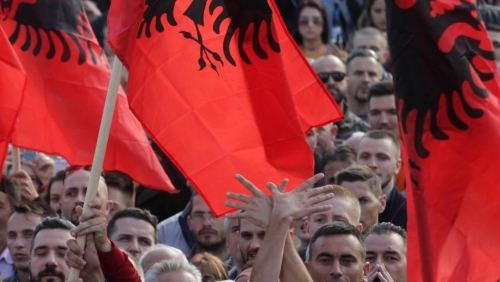



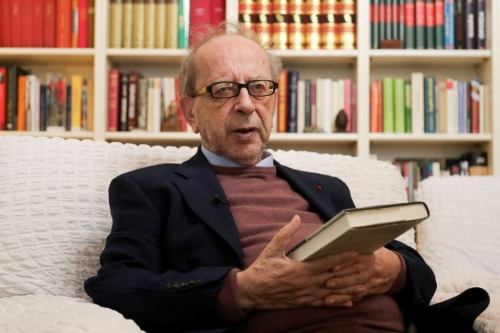
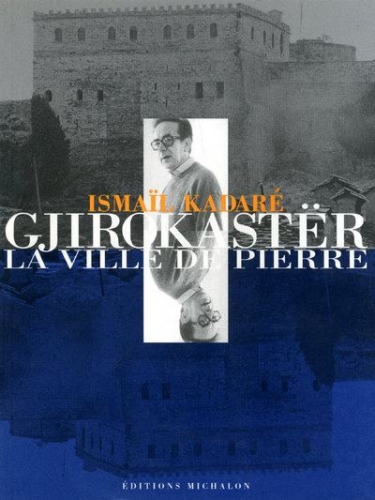
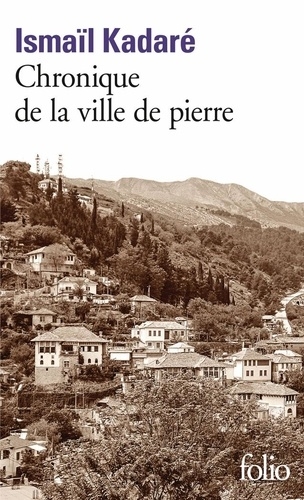
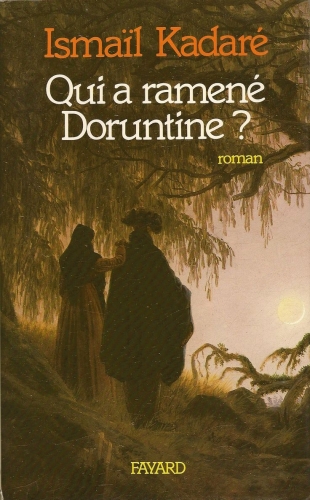
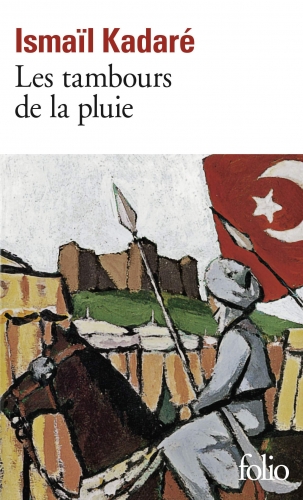
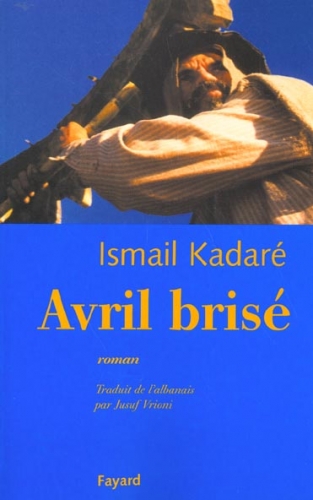
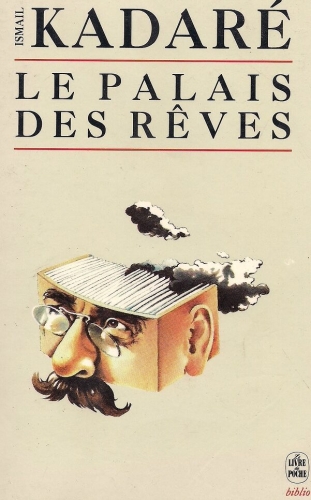
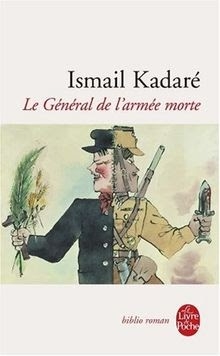
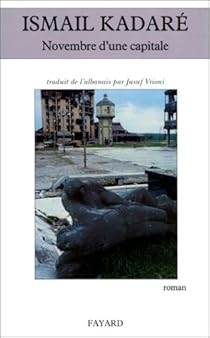
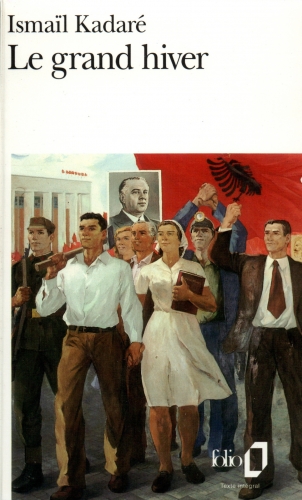
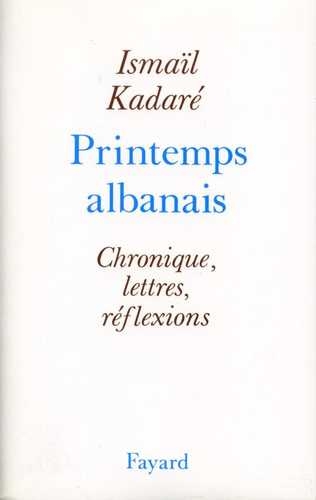


 del.icio.us
del.icio.us
 Digg
Digg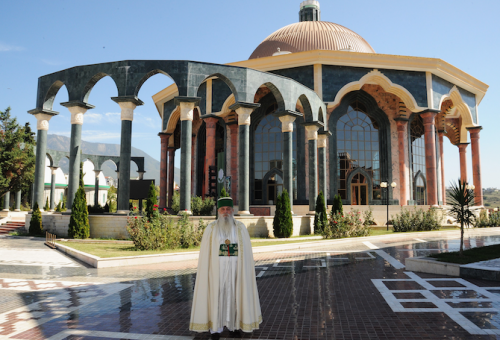
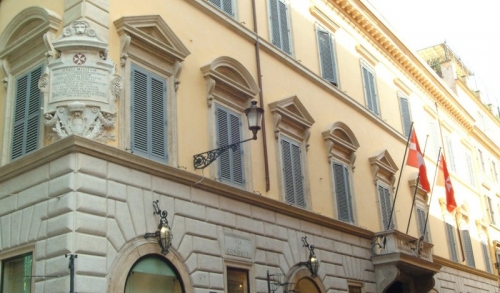
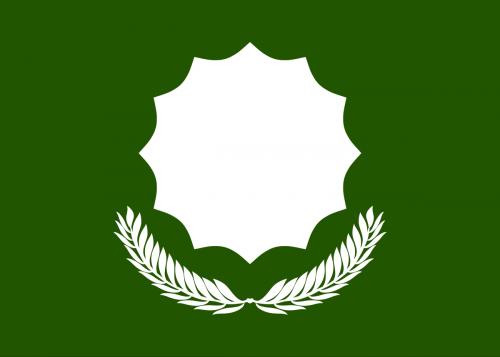
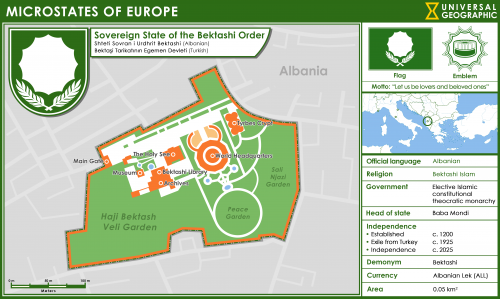
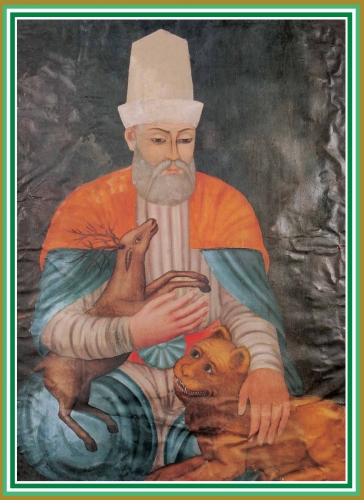
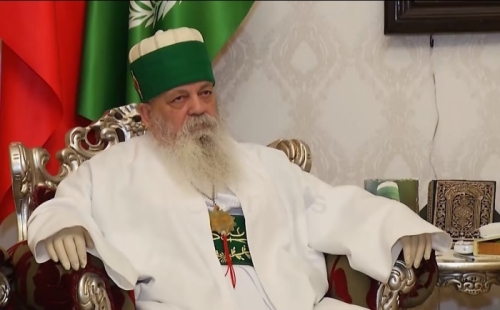
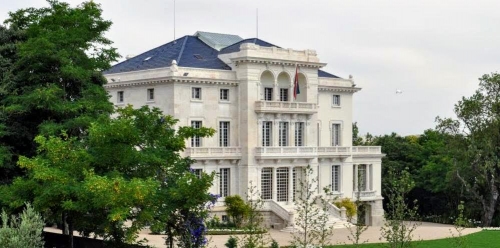
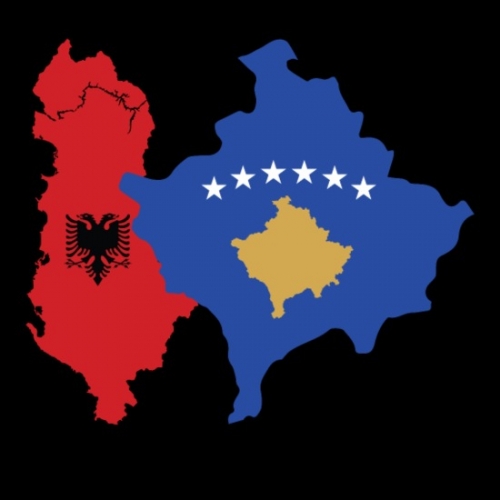
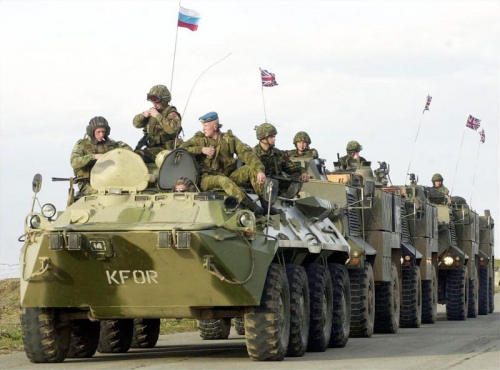
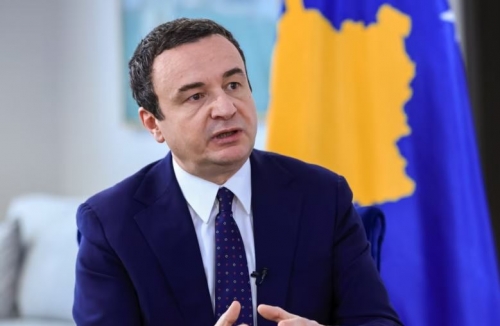
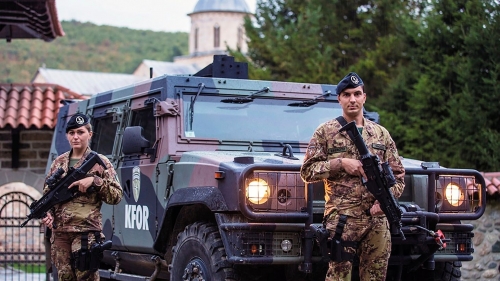
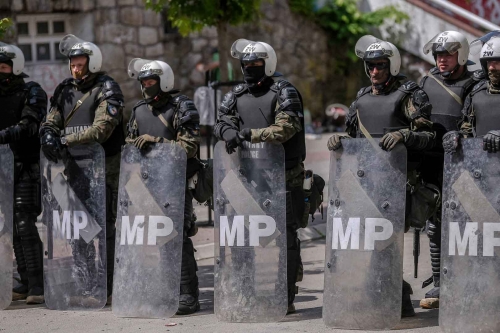
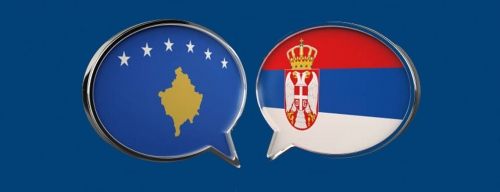
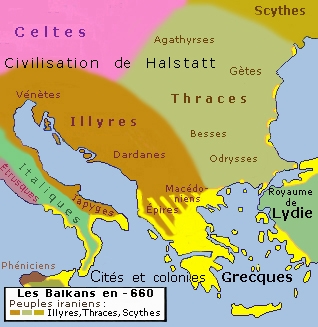
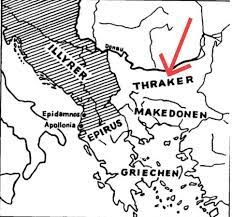
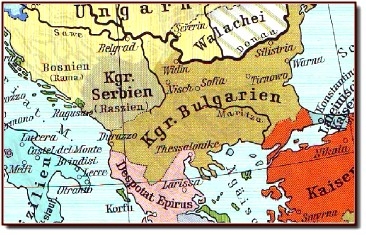
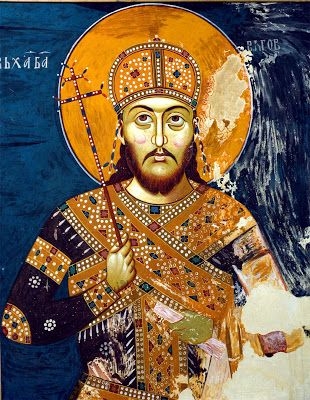
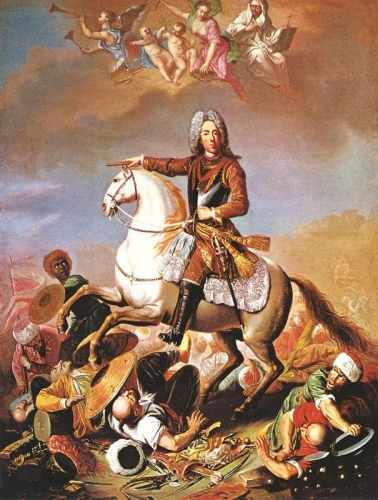
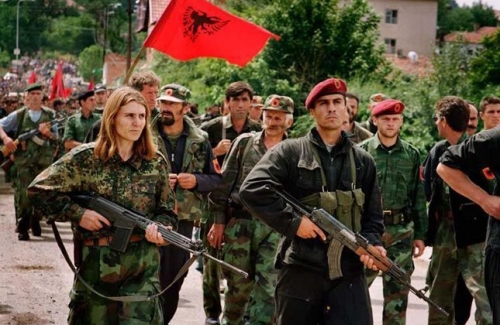
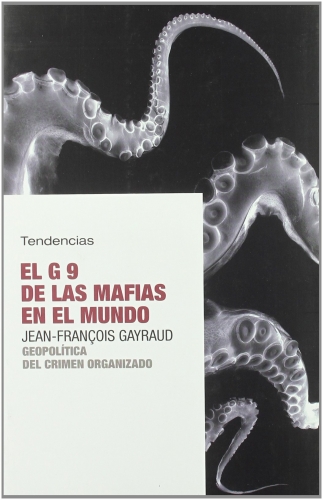
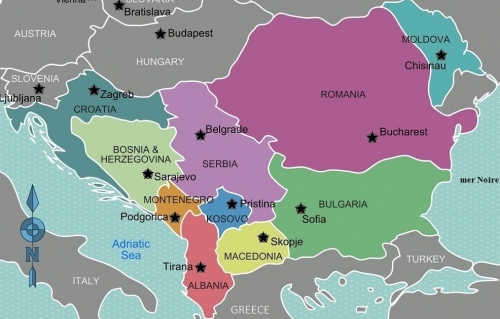

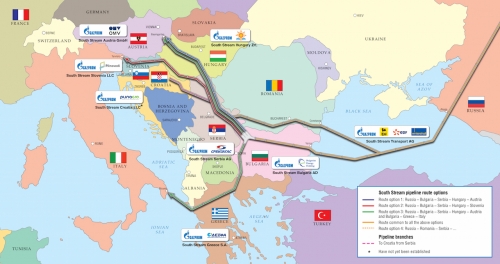
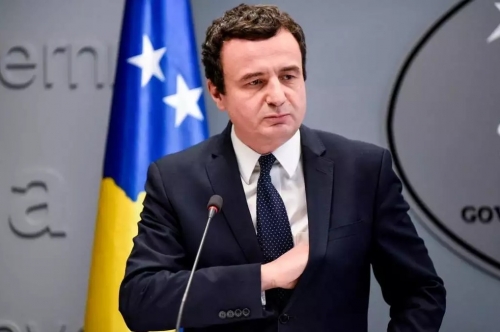
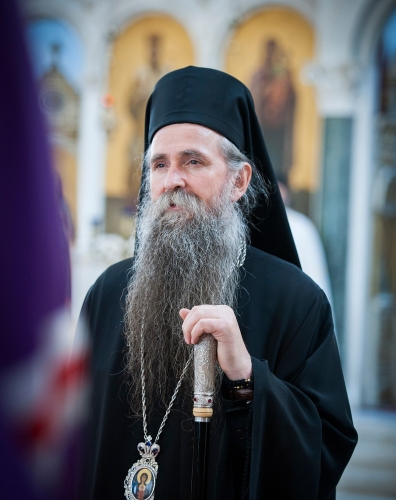
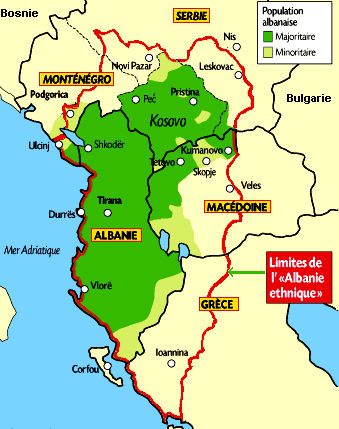
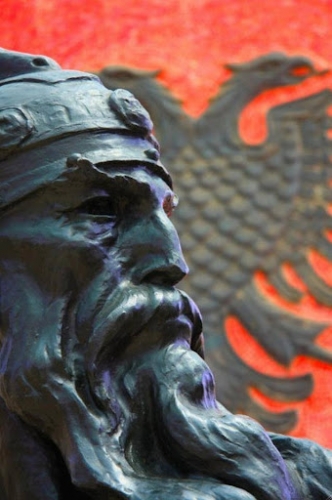
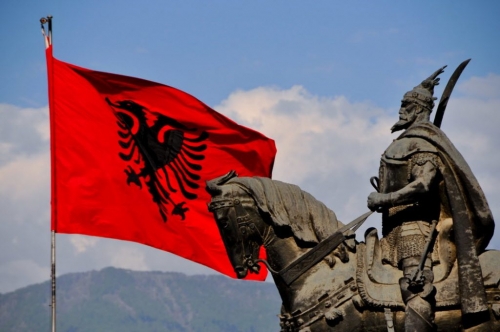
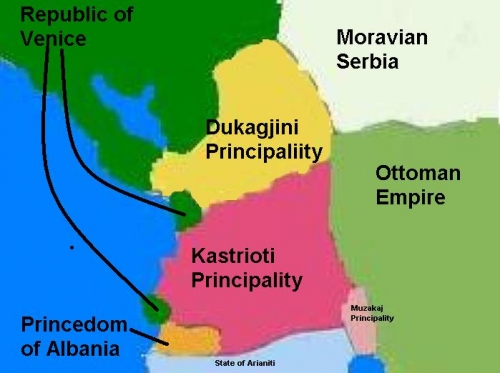
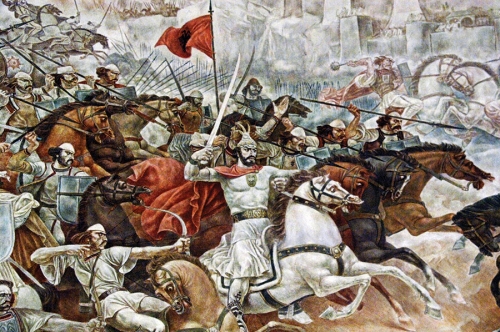
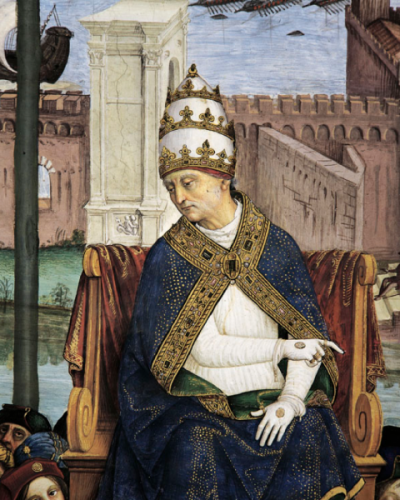
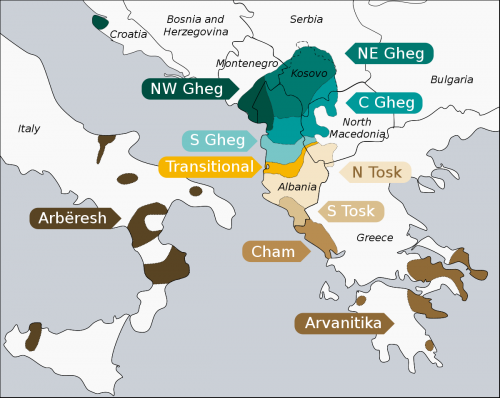
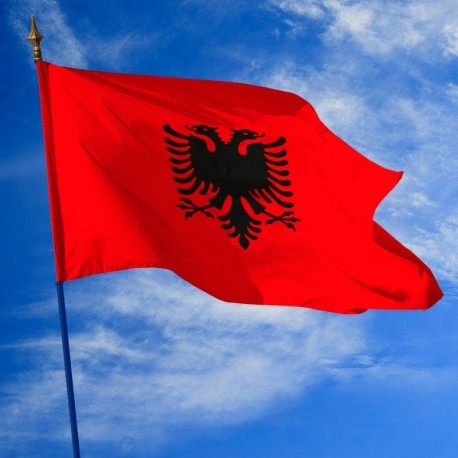
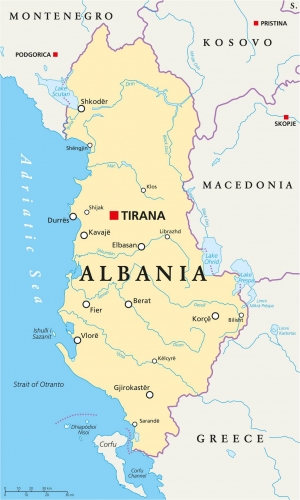
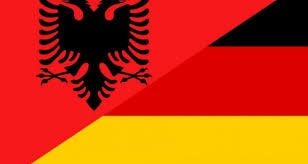
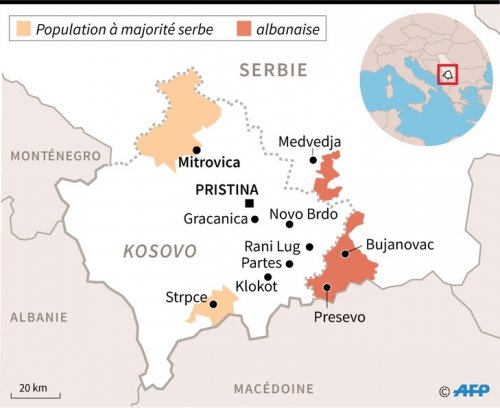
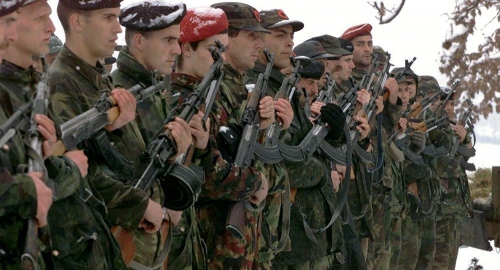
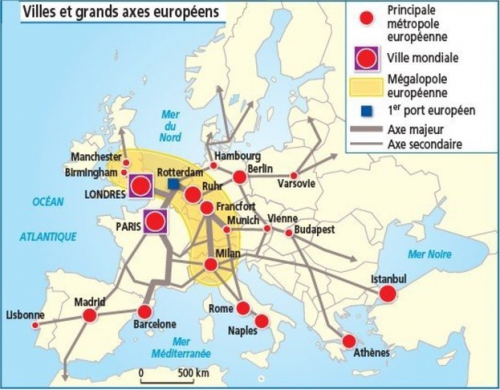
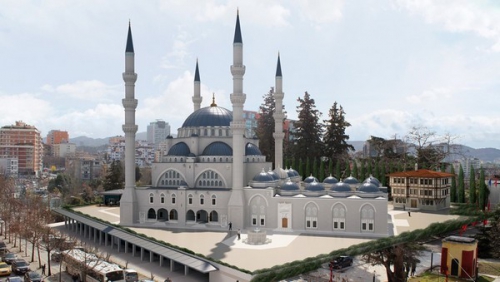
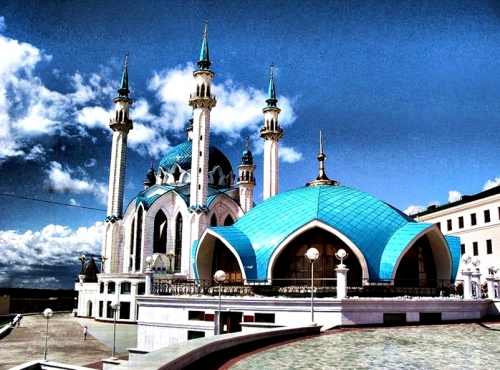
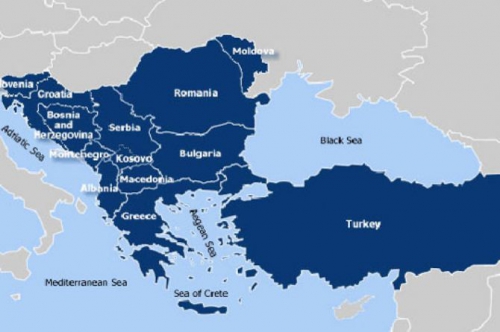

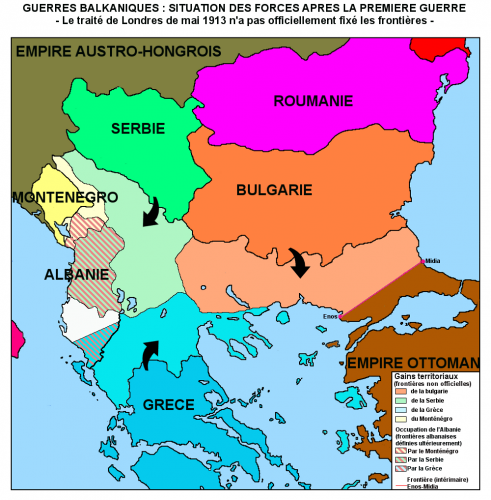
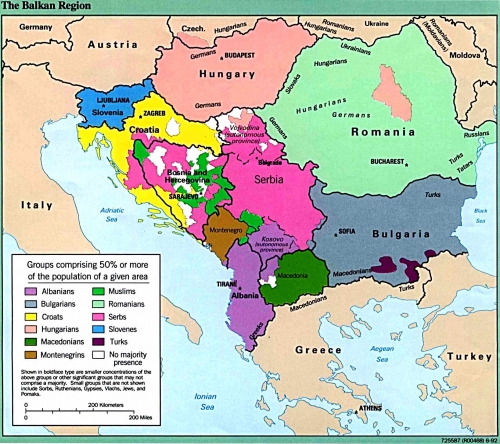
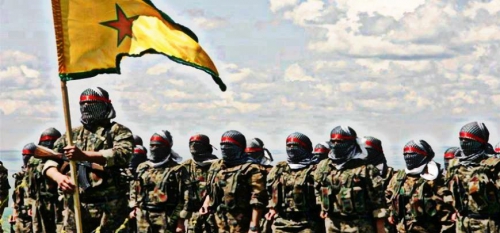
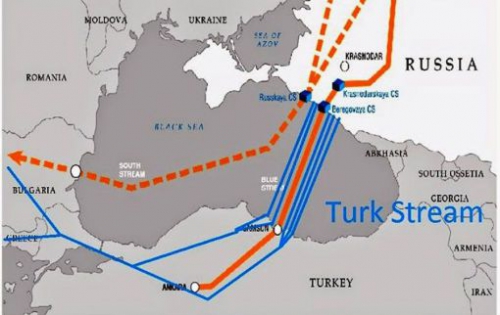
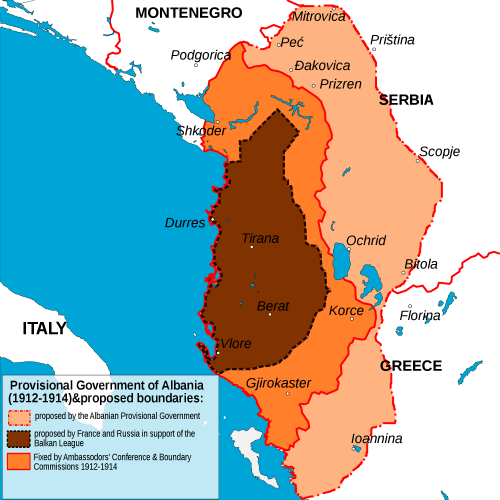
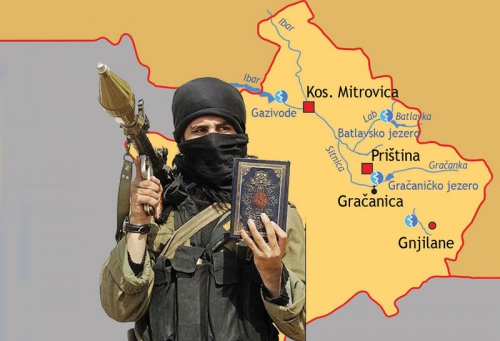
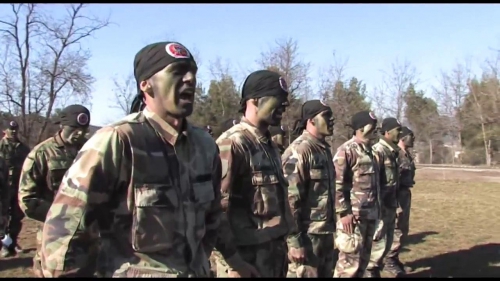
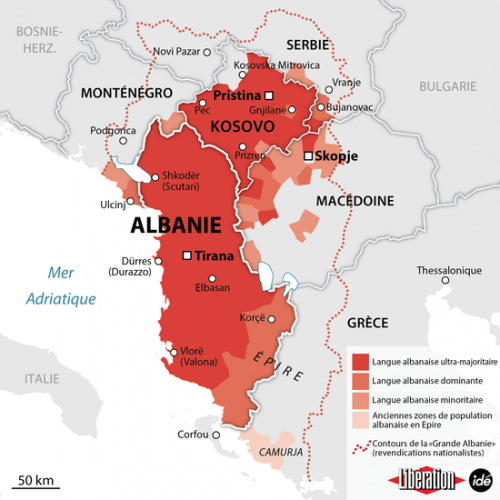 Bujar Hysa aveva invece svolto un ruolo chiave nel reclutamento di Aldo Kobuzi e di Maria Giulia Sergio. A inizio gennaio 2014 veniva intercettata una telefonata tra Hysa e il cognato di Aldo, Mariglen Dervishllari, il quale avvertiva l’imam: “Ti sto mandando mio fratello; gli ho dato il tuo numero di cellulare”. Senza il supporto della rete di Balla e Hysa sarebbe stato impossibile per i due volontari jihadisti organizzare e finanziarsi il viaggio in Siria.
Bujar Hysa aveva invece svolto un ruolo chiave nel reclutamento di Aldo Kobuzi e di Maria Giulia Sergio. A inizio gennaio 2014 veniva intercettata una telefonata tra Hysa e il cognato di Aldo, Mariglen Dervishllari, il quale avvertiva l’imam: “Ti sto mandando mio fratello; gli ho dato il tuo numero di cellulare”. Senza il supporto della rete di Balla e Hysa sarebbe stato impossibile per i due volontari jihadisti organizzare e finanziarsi il viaggio in Siria.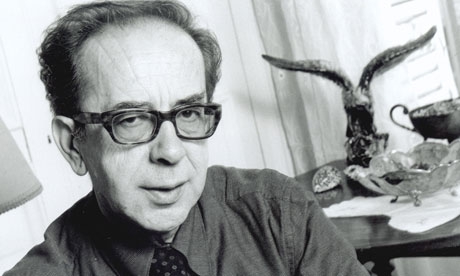
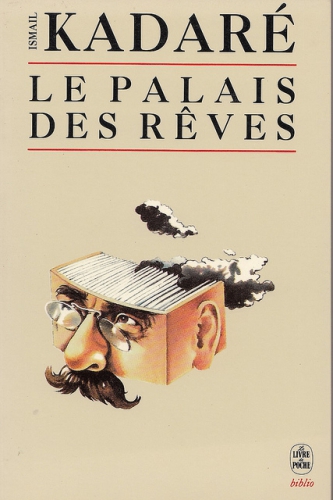 On suit l’initiation de Mark-Alem et les étapes sont aisément repérables malgré le mystère qu’entretient la machine infernale étatique. Deux réceptions (aux chapitres II et VI) se répondent (il y est beaucoup question de la famille Quprili, du Palais des Rêves vu de l’extérieur alors que les autres chapitres nous plongent dans l’antre de l’enfer) et accroissent l’angoisse du lecteur qui partage celle du héros.
On suit l’initiation de Mark-Alem et les étapes sont aisément repérables malgré le mystère qu’entretient la machine infernale étatique. Deux réceptions (aux chapitres II et VI) se répondent (il y est beaucoup question de la famille Quprili, du Palais des Rêves vu de l’extérieur alors que les autres chapitres nous plongent dans l’antre de l’enfer) et accroissent l’angoisse du lecteur qui partage celle du héros.




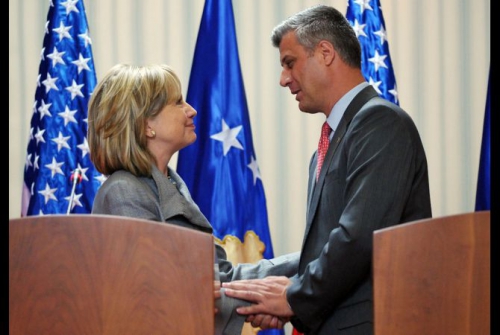
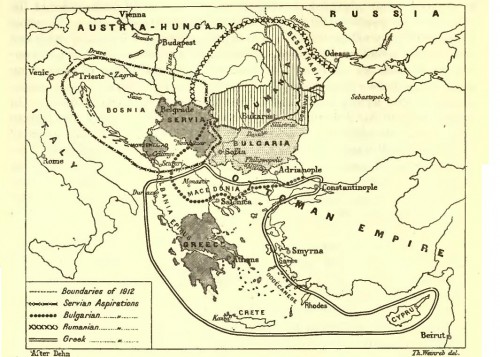
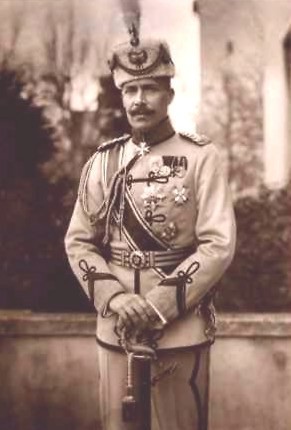 Le 6 février 1914, les grandes puissances européennes s’accordent pour donner la couronne princière d’Albanie au Prince allemand Wilhelm zu Wied, devenu de ce fait le “Mbret des Skipetars”. Sa ville de résidence devient Durazzo, sur la côte adriatique. L’autre candidat, un noble d’origine albanaise, le Prince Ahmed Fuad, descendant de Mehmed Ali, est débouté.
Le 6 février 1914, les grandes puissances européennes s’accordent pour donner la couronne princière d’Albanie au Prince allemand Wilhelm zu Wied, devenu de ce fait le “Mbret des Skipetars”. Sa ville de résidence devient Durazzo, sur la côte adriatique. L’autre candidat, un noble d’origine albanaise, le Prince Ahmed Fuad, descendant de Mehmed Ali, est débouté. 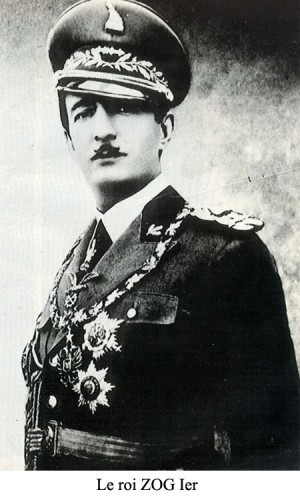 La journée du 8 octobre 1895 est un jour de joie pour Djemal Pacha Zogu, un chef de tribu de la région de Mati en Albanie centrale. Un fils, Ahmed, vient de naître dans la résidence fortifiée de ce spadassin. Plus tard, le jeune Ahmed recevra sa formation dans une école du Bosphore. Après la guerre, il entame une carrière fulgurante: en 1920, il devient ministre de l’intérieur; deux ans plus tard, il est premier ministre. En janvier 1925, il est le président de l’Etat albanais. Il survivra à cinquante-cinq attentats! Pendant l’été de l’année 1928, le Parlement albanais décide que le pays doit devenir une monarchie. Le couronnement a lieu le 1 septembre. Le nouveau roi, Zogu I, jure sur le Coran et sur la Bible.
La journée du 8 octobre 1895 est un jour de joie pour Djemal Pacha Zogu, un chef de tribu de la région de Mati en Albanie centrale. Un fils, Ahmed, vient de naître dans la résidence fortifiée de ce spadassin. Plus tard, le jeune Ahmed recevra sa formation dans une école du Bosphore. Après la guerre, il entame une carrière fulgurante: en 1920, il devient ministre de l’intérieur; deux ans plus tard, il est premier ministre. En janvier 1925, il est le président de l’Etat albanais. Il survivra à cinquante-cinq attentats! Pendant l’été de l’année 1928, le Parlement albanais décide que le pays doit devenir une monarchie. Le couronnement a lieu le 1 septembre. Le nouveau roi, Zogu I, jure sur le Coran et sur la Bible. 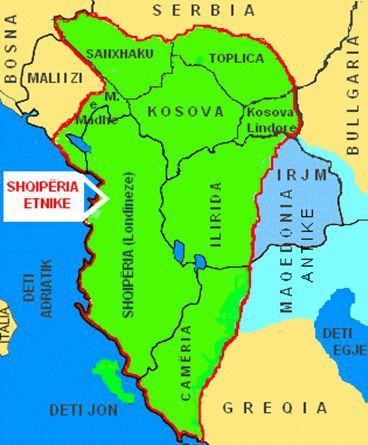 Au Kosovo, la situation reste tendue. Lors des élections communales du 3 novembre 2013, plusieurs bureaux de vote de Mitrovica ont été pris d’assaut, du moins dans la partie septentrionale de la ville habitée par des Serbes. Les urnes ont disparu. Avant que l’on ne passe au scrutin, les représentants des Serbes du Kosovo avaient appelé à un boycott des élections. Ils considéraient comme une trahison l’entente forgée ce printemps entre Belgrade et Pristina, à l’instigation de l’UE, parce que cet accord accordait peut-être une certaine autonomie aux Serbes mais prévoyait simultanément une déconstruction en règle de leurs structures parallèles.
Au Kosovo, la situation reste tendue. Lors des élections communales du 3 novembre 2013, plusieurs bureaux de vote de Mitrovica ont été pris d’assaut, du moins dans la partie septentrionale de la ville habitée par des Serbes. Les urnes ont disparu. Avant que l’on ne passe au scrutin, les représentants des Serbes du Kosovo avaient appelé à un boycott des élections. Ils considéraient comme une trahison l’entente forgée ce printemps entre Belgrade et Pristina, à l’instigation de l’UE, parce que cet accord accordait peut-être une certaine autonomie aux Serbes mais prévoyait simultanément une déconstruction en règle de leurs structures parallèles. 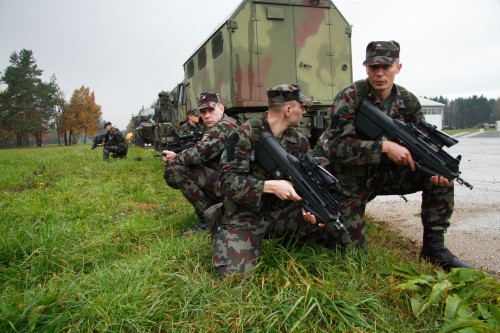
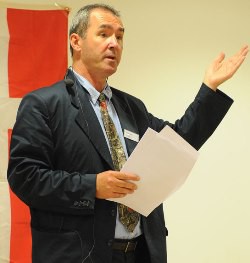 DMZ: Welche Rolle spielten dabei die europäischen Großmächte?
DMZ: Welche Rolle spielten dabei die europäischen Großmächte?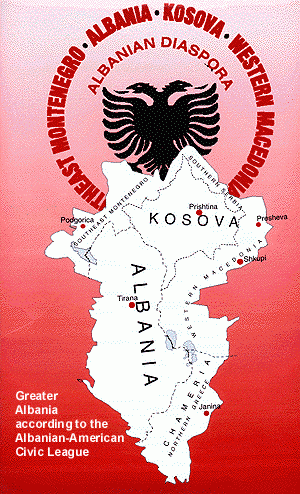 Wednesday, December 5, 2012, the Albanian Prime Minister Sali Berisha advocated granting Albanian citizenship to all Albanians, wherever they reside. This statement was made during a visit of the city of Vlora where the independence of the Albanian state was declared, only 100 years ago. At the time Albania had just liberated itself from Ottoman rule.
Wednesday, December 5, 2012, the Albanian Prime Minister Sali Berisha advocated granting Albanian citizenship to all Albanians, wherever they reside. This statement was made during a visit of the city of Vlora where the independence of the Albanian state was declared, only 100 years ago. At the time Albania had just liberated itself from Ottoman rule.
